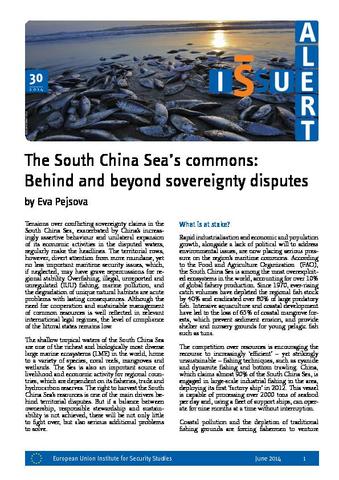You are here
The South China Sea’s commons: behind and beyond sovereignty disputes

Tensions over conflicting sovereignty claims in the South China Sea, exacerbated by China’s increasingly assertive behaviour and unilateral expansion of its economic activities in the disputed waters, regularly make the headlines. The territorial rows, however, divert attention from more mundane, yet no less important maritime security issues, which, if neglected, may have grave repercussions for regional stability. Overfishing, illegal, unreported and unregulated (IUU) fishing, marine pollution, and the degradation of unique natural habitats are acute problems with lasting consequences. Although the need for cooperation and sustainable management of common resources is well reflected in relevant international legal regimes, the level of compliance of the littoral states remains low. The shallow tropical waters of the South China Sea are one of the richest and biologically most diverse large marine ecosystems (LME) in the world, home to a variety of species, coral reefs, mangroves and wetlands. The Sea is also an important source of livelihood and economic activity for regional countries, which are dependent on its fisheries, trade and hydrocarbon reserves. The right to harvest the South China Sea’s resources is one of the main drivers behind territorial disputes. But if a balance between ownership, responsible stewardship and sustainability is not achieved, there will be not only little to fight over, but also serious additional problems to solve.